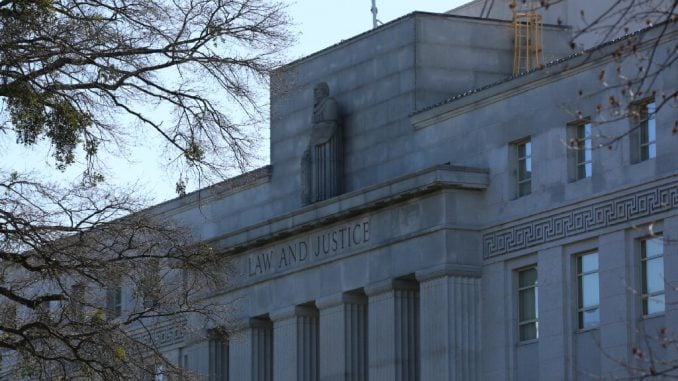
The N.C. judicial system should be made up of the best judges we can find. No one disagrees about that. But how do you make that happen? Our current system allows our citizens to pick their judges through elections. But some think we should switch to an appointive system. While there might be some benefits to appointing judges, elections are still the best fit for North Carolina.
How we select judges might seem like inside baseball if you’re not a lawyer. But for the average citizen, a judge is more likely to have a direct impact on your life than any other government official. Think of the serious matters handled daily by our courts: violent crimes, DUIs, divorces, child custody, will probate disputes. If you’re involved with any of these, it’s probably the most important thing going on in your life at that moment — and judges will play a huge part in the outcome. Jealously guard your right to have a say in who’s judging you.
One of the main arguments in favor of appointing judges is that appointments make the process less political. They don’t. Instead, appointments just drive the politics into the dark. It’s been said the difference between an elective system and an appointive system is like the difference between a cowboy Western and a Greek tragedy: does the action happen on screen or off stage? An appointive system, like a Greek tragedy, will move the action off stage and out of public view.
A judgeship is a public office and how we fill that office will always be part of the political process. The only question is whether the politics unfold out in the open as they do in an election or whether they’re confined to the halls of government as in an appointment process. Either way, the action still happens. All we have to decide is whether the public gets to see it unfold. Our system is best served by having the process play out in public. Sunlight is, after all, the best disinfectant.
Elections also help keep judges in touch with citizens. A good judge is, first and foremost, concerned with applying the law impartially and according to its letter. We’re a nation of laws and our system only works if judges interpret laws rather than write them. At the same time, our laws exist to protect people — real people — and property. Elections keep judges tied to those real people and keeps the process of judging from devolving into a purely academic exercise.
Opponents of elections often point to the fact that there’s usually low turnout for judicial elections. That may be true. But it doesn’t follow that citizens who do care about judicial races and take the time to make informed choices should have their right to vote taken away. Lots of races have low turnout. Just think of your typical municipal runoff in an off-year election. No one’s suggesting we get rid of those elections just because of low participation.
The best way to address low turnout is to increase the information available to the public about our court system and judicial races. Much work is already being done in this area. Justices of the N.C. Supreme Court travel our state teaching people about our court system. Various legal groups like the N.C. Bar Association, Federalist Society and N.C. Association of Defense Attorneys provide information on judges. We need to build on this good work, not abolish judicial elections.
We’ll never come up with a perfect system for picking our judges. To riff on a phrase from Churchill, electing judges is the worst method of choosing judges — except all the other ways we can come up with. Elections allow citizens to have a direct say in who’s judging them. In a state that prides itself on being “First in Freedom,” that’s exactly how it should stay.
Luke J. Farley is an attorney in Raleigh with the firm Conner Gwyn Schenck PLLC



